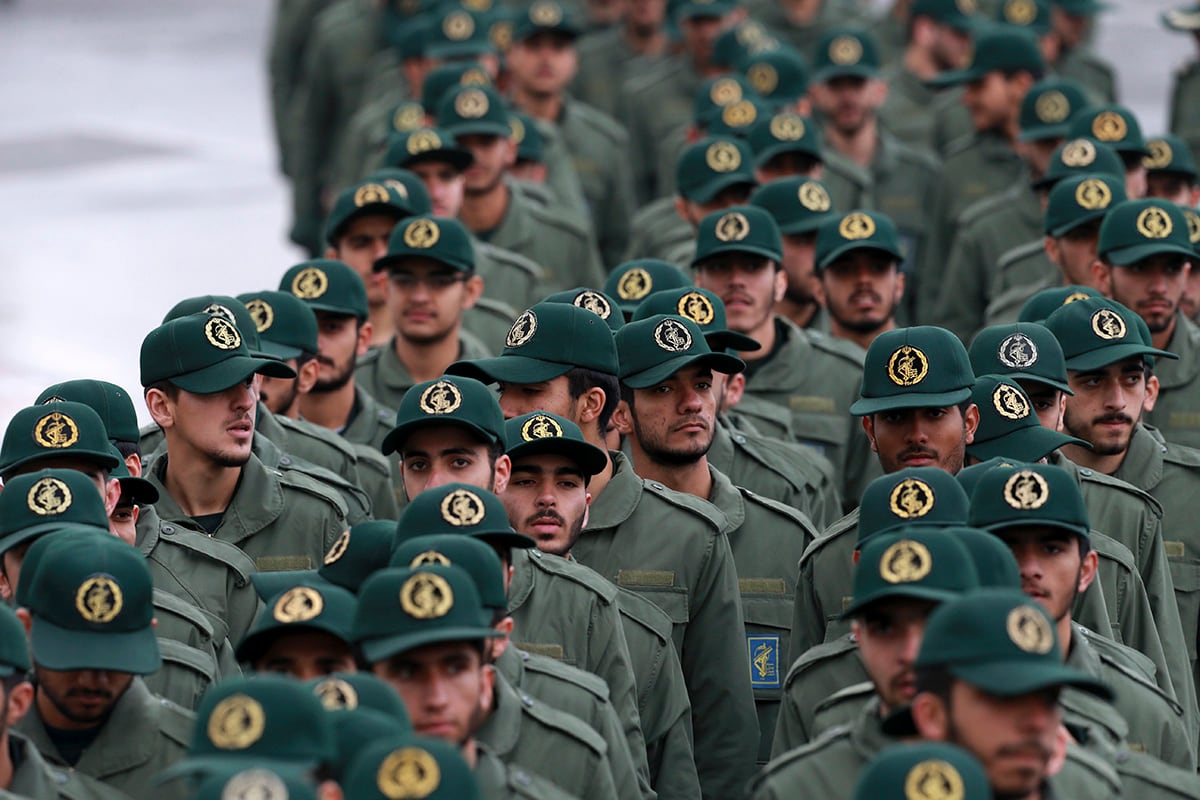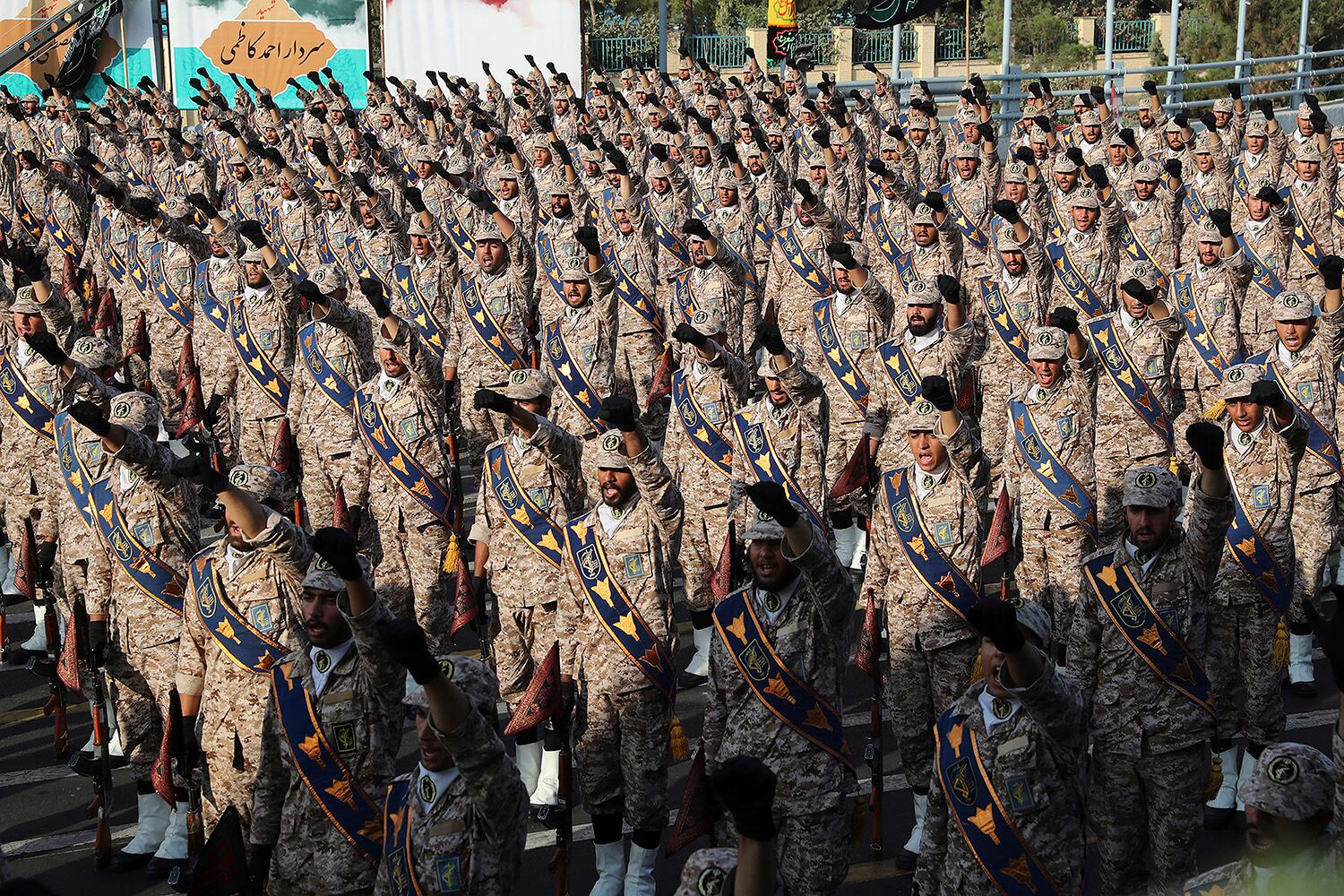In the latest tit-for-tat escalation between Iran and the U.S. following a decapitation strike that killed Iranian general Qasem Soleimani, Iran is now threatening military sites.
In an interview with CNN, Hossein Dehghan, a military adviser to Iran’s Supreme Leader Ayatollah Ali Khamenei, said that Iran’s response will be military “against military sites.”
“Let me tell you one thing: Our leadership has officially announced that we have never been seeking war and we will not be seeking war,” Dehghan told CNN.
“It was America that has started the war. Therefore, they should accept appropriate reactions to their actions. The only thing that can end this period of war is for the Americans to receive a blow that is equal to the blow they have inflicted. Afterward they should not seek a new cycle,” Dehghan said in the interview with CNN.
RELATED

The comments from Dehghan come following threats from President Donald Trump Saturday that the U.S. military was targeting 52 Iranian sites, to include cultural locations, if Iran retaliated against the U.S. for the death of Soleimani.
“Let this serve as a WARNING that if Iran strikes any Americans, or American assets, we have targeted 52 Iranian sites (representing the 52 American hostages taken by Iran many years ago), some at a very high level & important to Iran & the Iranian culture, and those targets, and Iran itself, WILL BE HIT VERY FAST AND VERY HARD. The USA wants no more threats!,” Trump tweeted Saturday.
In the interview with CNN, Dehghan called Trump’s tweet that threatened Iranian cultural sites “ridiculous and absurd.”
“[Trump] doesn’t know international law. He doesn’t recognize UN resolutions, either. Basically he is a veritable gangster and a gambler. He is no politician he has no mental stability,” Dehghan said in the CNN interview.
An Islamic Revolutionary Guard commander told Iran Tasnim News Agency that there were 35 strategic U.S. targets in reach of Iranian forces.
“The Strait of Hormuz is a vital thoroughfare for the West, and a large number of American destroyers and warships cross the Strait of Hormuz, the Sea of Oman and the Persian Gulf,” Gen. Gholamali Abuhamzeh, an IRGC commander in Kerman Province, Iran, told Tasnim.
Another top Iranian military commander with the IRGC told state-run Fars News Agency that Iran’s response to the death of Soleimani would take place over vast geographic terrain.
“The assassination of martyred General Qassem Soleimani will be followed by a strategic revenge which will definitely put an end to the US presence in the region,” Maj. Gen. Hossein Salami told Fars.
“This act of reprisal will come in a vast geography throughout time and with determining impacts,” the IRGC commander told Fars.
Iran controls and supports a nebulous web of militias and proxy forces that stretch from Tehran to Yemen and Syria. Iran has often used proxy forces to orchestrate attacks against U.S. interests and allies across the Middle East.
Attacks by Iran-backed militias have often complicated efforts to directly blame Tehran for its malign behavior. Officials within the Trump administration have said the U.S. will hold Iran responsible for the actions of its militia groups.
Iran-backed militia groups in Iraq appear to be preparing to strike U.S. forces in the region according to chatter from social media accounts associated with various Shia Popular Mobilization Forces.
Some Iraqi Hezbollah PMF groups in Iraq have been calling for on social media volunteers seeking to martyr themselves in attacks targeting U.S. troops.
RELATED

A social media account associated with Kata’ib Hezbollah — an Iran-backed militia that was targeted in five U.S. airstrikes on Dec. 29 — posted on social media Saturday that U.S. forces would be the target of attacks starting Sunday evening.
Coalition officials in Iraq said Saturday that the International Zone in Baghdad took indirect fire and rockets landed near Balad airbase. Saturdays rocket attack brings the total to 13 strikes against bases housing coalitions troops in Iraq over the last two months, according to coalition military spokesman Col. Myles Caggins III.
Shawn Snow is the senior reporter for Marine Corps Times and a Marine Corps veteran.




